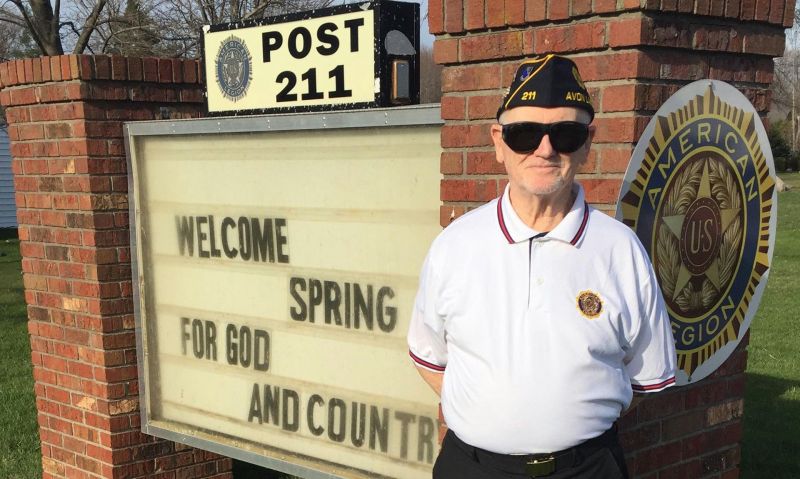
Post commander using decades of experience in group counseling to help others deal with their “demons.”
Len Lieber has been involved with and around people in the U.S. military “all of my life, just about.” The 84-year-old commander of American Legion Post 211 in Avon Lake, Ohio, served in the U.S. Army from 1955 to 1963, and also spent 50 years as an advocate for abused children, serving as both an executive and practitioner to assist those abused with dealing with their trauma.
Now Lieber is shifting that expertise and passion to another aspect of mental health – veterans experiencing post-traumatic stress disorder (PTSD). On June 8, Lieber will facilitate the first support group meeting at Post 211 for veterans who are battling PTSD.
“Why I wanted to do this for vets is that bad things have happened to incredibly decent people who are veterans of multiple wars,” Lieber said. “I’ve known military people who served in World War I, World War II, Korea, Vietnam, the wars in the Middle East. I’ve met people from every single one of those situations. And I have to tell you, for me they are some of the greatest people I’ve ever met. And at this point in my life, the greatest gift I can give is the skills that I’ve developed … and helping them deal with the demons that they’re terrorized to openly talk about with people.”
Lieber was a part of developing a counseling program that eventually spread across the nation. “From then on in, I believed that group counseling, group treatment – whatever you want to call it – was one of the best ways of helping people deal with their demons,” he said. “I’m very transparent about what I went through. I’ve had multiple experiences that have led to my own demons. And I realized when I was doing group counseling … I realized that I was comforted by working with them. As they spoke about their demons, I was able to relate very easily.”
Lieber said seeing how some Vietnam veterans were treated when they returned to the United States was part of the motivation behind forming the support group. “I wanted to help people I knew who came back. It was a disgrace for this country to treat veterans terribly – many of whom had no choice and were sent to Vietnam. You don’t send your warriors into war and do that to them when they come back. It was shameful.”
Lieber will provide his phone number to those who are a part of the support group so that they can reach him outside of the meetings. And while he believes in getting help from professional therapists, he also sees the value in sharing your experience with your peers.
“The people that know what PTSD is all about are the people who experience it,” he said. “Most therapists don’t understand what it feels like to have PTSD. To be sitting in your lounge chair and all of the sudden you have a panic attack because you’ve had a flashback. If we can pull people together who are privately suffering from the demons they’re carrying around … they can be a part of an extended family and are healing each other.”
“They know that the post is there to serve them. That’s what the Legion is for: to serve veterans. That’s why I joined. I’m there to serve.”
- Be the One

